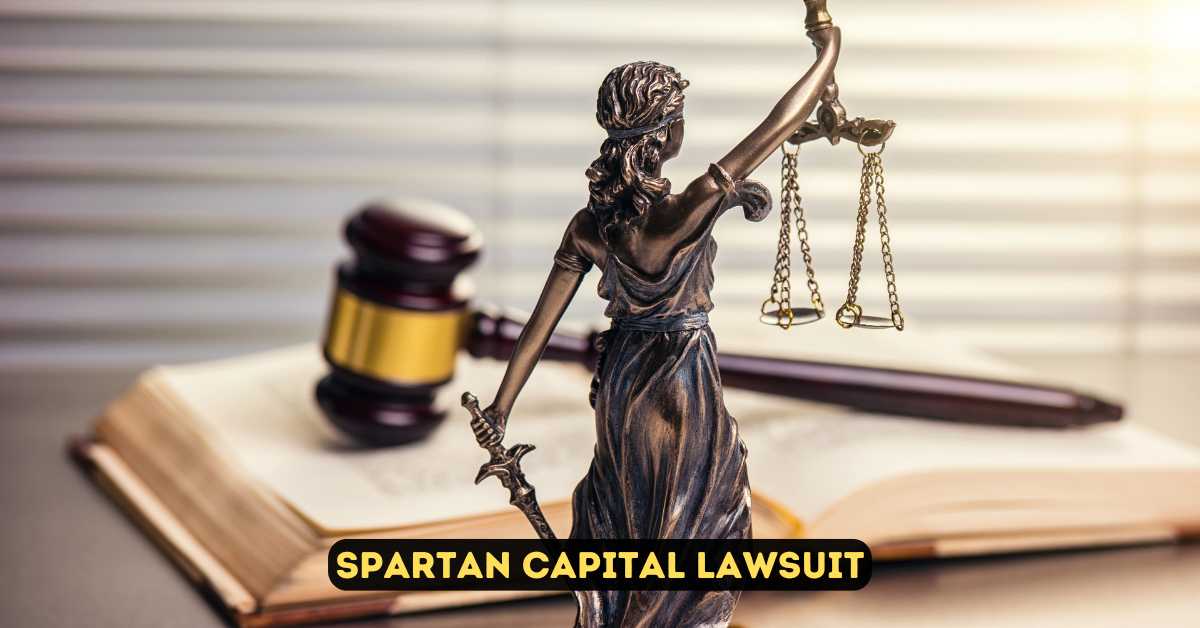The financial world is no stranger to legal battles, and one of the notable recent cases is the Spartan Capital lawsuit. This case has captured the attention of investors, legal experts, and financial analysts alike due to its implications for investment practices and regulatory compliance. In this comprehensive article, we will delve into the details of the Spartan Capital lawsuit, exploring its origins, key players, legal proceedings, and potential impacts on the financial industry.
Understanding Spartan Capital
Overview of Spartan Capital
Spartan Capital is an investment firm that provides a range of financial services, including asset management, brokerage, and advisory services. Established with the aim of delivering innovative investment solutions, Spartan Capital has built a reputation in the financial industry for its strategic investment approaches.
- Business Model: Spartan Capital operates on a model that combines traditional investment strategies with cutting-edge financial technology. This approach aims to optimize returns and manage risk for its clients.
- Services Offered: The firm offers services such as portfolio management, financial planning, and trading solutions. It caters to both individual investors and institutional clients.
The Role of Spartan Capital in the Financial Market
Spartan Capital has been involved in various high-profile transactions and investment strategies. Its prominence in the financial market has led to scrutiny, especially when legal issues arise.
- Investment Strategies: The firm is known for its diverse investment strategies, including equities, bonds, and alternative investments. This diversification is intended to provide clients with balanced portfolios and risk management.
- Regulatory Compliance: As a key player in the investment industry, Spartan Capital is subject to stringent regulatory requirements. Ensuring compliance with these regulations is crucial for maintaining trust and avoiding legal challenges.
The Lawsuit: An Overview
The Origins of the Spartan Capital Lawsuit
The Spartan Capital lawsuit stems from allegations of misconduct and regulatory violations. Understanding the origins of the lawsuit provides insight into the broader context of the legal battle.
- Initial Complaints: The lawsuit began with complaints from investors who claimed that Spartan Capital engaged in unethical practices. These complaints were centered around issues such as misrepresentation of investment risks and unauthorized trading activities.
- Regulatory Involvement: Regulatory bodies, including the Securities and Exchange Commission (SEC), were involved in investigating the allegations. Their findings played a crucial role in shaping the lawsuit.
Key Allegations and Claims
The lawsuit includes several key allegations against Spartan Capital. These claims are central to understanding the legal and financial implications of the case.
- Misrepresentation of Risks: One of the primary allegations is that Spartan Capital misrepresented the risks associated with certain investments. Investors claimed that they were not adequately informed about the potential downsides of their investments.
- Unauthorized Trading: Another significant claim involves unauthorized trading activities. Investors alleged that Spartan Capital engaged in trades without proper authorization, leading to financial losses.
- Breach of Fiduciary Duty: The lawsuit also alleges a breach of fiduciary duty. This claim suggests that Spartan Capital failed to act in the best interests of its clients, prioritizing its own financial gain over client welfare.
Legal Proceedings
Court Filings and Initial Responses
The legal proceedings in the Spartan Capital lawsuit began with the filing of formal complaints and responses from both parties.
- Plaintiffs’ Filings: The plaintiffs, including individual investors and institutional clients, filed detailed complaints outlining their allegations. These filings included evidence and documentation to support their claims.
- Defendants’ Response: Spartan Capital responded to the allegations, providing counterarguments and evidence to refute the claims. The firm denied any wrongdoing and argued that its actions were in compliance with regulatory standards.
Key Stages of the Lawsuit
The lawsuit has progressed through several key stages, each contributing to the unfolding legal narrative.
- Discovery Phase: During the discovery phase, both parties exchanged evidence and conducted depositions. This phase was crucial for uncovering relevant information and building the case.
- Pre-Trial Motions: Various pre-trial motions were filed, including motions to dismiss certain claims and motions for summary judgment. These motions addressed procedural and substantive issues in the case.
- Trial and Hearings: The trial phase involved presenting evidence and arguments in court. Witnesses, including financial experts and former employees, provided testimony to support their respective sides.
Settlement Negotiations
Settlement negotiations have been a significant aspect of the legal proceedings. Both parties have explored the possibility of reaching a settlement to avoid a prolonged trial.
- Negotiation Process: Settlement discussions involve negotiations between the plaintiffs and defendants to reach a mutually acceptable resolution. This process may include financial compensation, changes in business practices, or other terms.
- Potential Settlement Terms: Possible settlement terms could involve monetary compensation for affected investors, changes in Spartan Capital’s operational procedures, or public disclosures regarding the case.
Implications for the Financial Industry
Impact on Investment Practices
The Spartan Capital lawsuit has implications for investment practices, particularly regarding transparency and regulatory compliance.
- Enhanced Transparency: The case highlights the importance of transparency in investment practices. Investment firms may need to adopt clearer communication strategies and provide more detailed information about investment risks.
- Stricter Compliance Measures: The lawsuit may lead to stricter regulatory measures and compliance requirements. Financial institutions could face increased scrutiny to ensure adherence to regulatory standards.
Regulatory Reactions and Changes
Regulatory bodies may respond to the lawsuit by implementing changes in regulations and enforcement practices.
- Regulatory Updates: Following high-profile cases like the Spartan Capital lawsuit, regulatory bodies often review and update regulations to address identified gaps. This can include revising rules related to investor protection and disclosure requirements.
- Increased Enforcement: The case may lead to increased enforcement actions by regulatory agencies. Firms may face more rigorous audits and investigations to ensure compliance with financial regulations.
The Role of Legal Counsel and Financial Advisors
Legal Counsel in Financial Disputes
Legal counsel plays a crucial role in navigating financial disputes and lawsuits. Their expertise is essential for both plaintiffs and defendants.
- Plaintiffs’ Legal Representation: Investors involved in the lawsuit rely on legal counsel to represent their interests and advocate for their rights. Attorneys specializing in securities law and financial disputes provide guidance and support throughout the legal process.
- Defendants’ Legal Defense: Spartan Capital’s legal team is responsible for defending the firm against allegations and presenting counterarguments. Defense attorneys work to demonstrate compliance and refute claims of misconduct.
Financial Advisors and Risk Management
Financial advisors and risk management professionals play a critical role in preventing and addressing financial disputes.
- Risk Assessment: Financial advisors help clients assess and manage investment risks. By providing clear information and guidance, they can reduce the likelihood of misunderstandings and disputes.
- Compliance Monitoring: Advisors also monitor compliance with regulatory standards and internal policies. This oversight helps ensure that investment practices align with legal and ethical requirements.
Read Next: Spartan Capital Securities Lawsuit: A Comprehensive Analysis
Lessons Learned from the Spartan Capital Lawsuit
Importance of Due Diligence
The lawsuit underscores the importance of conducting thorough due diligence in investment activities. Both investors and firms must be diligent in understanding and managing investment risks.
- Investor Vigilance: Investors should conduct research and seek professional advice before making investment decisions. Understanding the risks and benefits of investments can help prevent disputes and financial losses.
- Firm Responsibility: Investment firms must prioritize ethical practices and transparency. Adhering to regulatory standards and maintaining clear communication with clients are essential for building trust and avoiding legal issues.
Enhancing Regulatory Frameworks
The case highlights the need for robust regulatory frameworks to protect investors and ensure fair practices in the financial industry.
- Regulatory Improvements: Policymakers and regulatory bodies may consider enhancing regulations to address emerging issues and improve investor protection. This can include updating rules related to disclosure, fiduciary duty, and risk management.
- Collaborative Efforts: Collaboration between regulators, financial institutions, and industry stakeholders can lead to more effective regulatory frameworks and enforcement practices. Engaging in dialogue and sharing best practices can contribute to a more transparent and accountable financial system.
Conclusion
The Spartan Capital lawsuit represents a significant legal and financial event with far-reaching implications. By examining the origins of the lawsuit, key allegations, legal proceedings, and industry impacts, we gain a comprehensive understanding of the case and its broader relevance.
The lawsuit serves as a reminder of the importance of transparency, regulatory compliance, and ethical practices in the financial industry. As the case progresses, its outcomes will likely influence investment practices, regulatory frameworks, and the role of legal and financial professionals. Through continued vigilance and commitment to ethical standards, the financial industry can work towards a more transparent and accountable future.








